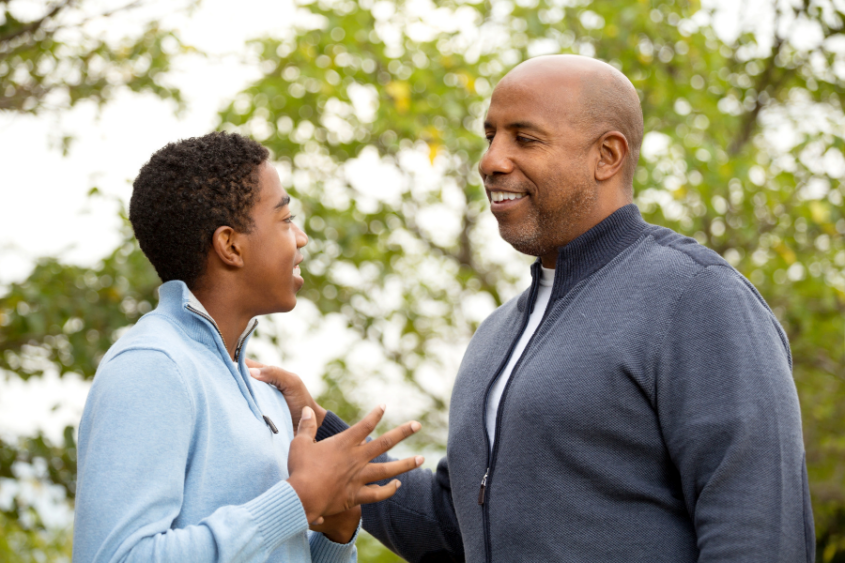Overview
With myths and fake news circulating on social media, many people might already have misinformation about mental health. Too often, the person or child suffering from a mental health problem gets blamed for not trying hard enough, or the parent feels guilty, believing they did something wrong.
We want our children to be physically and emotionally healthy. However, it might be easy to miss signs of mental health issues because we think that the child’s behavior is just part of growing up. Also, emotional topics such as mental health can be uncomfortable in some families.
It can be a good idea to find the best online therapy options in times like these. The right therapist can help your child with their mental health challenges.
Why Mental Health Is Important
Good mental health can help your child:
- Perform better in school
- Develop happy and strong relationships
- Learn skills to manage their feelings and thoughts
- Grow into high-functioning adults
If your child has mental health issues, early intervention can prevent severe, long-lasting problems that they can carry to adulthood.
Common Warning Signs
It can vary from one child or teen to another, but here are the most common warning signs to watch out for:
- Hyperactive behavior
- Outbursts of extreme irritability
- Frequent disobedience or aggression
- Frequent temper tantrums
- Frequent stomach aches or headaches
- Changes in school performance
- Frequent nightmares
- Excessive worry or anxiety
- Unusual behavior (fighting to avoid bed or school)
- Loss of interest in their friends or favorite activities
- Self-harm
- Rapid weight loss or gain
Talking To Your Child & Teen About Mental Health
Provide Assurance
Many kids or teens might be too scared to talk to you because they think it’s their fault that they’re feeling depressed or anxious.
However, mental health issues are common. Assure them that it isn’t their fault.
Approximately one in six children and teens (6-17 years old) might experience mental health issues for different reasons.
Still, this doesn’t mean that they can’t get better.
Consider Their Age
School-Age Children
Children have a fair idea of common medical problems such as allergies, colds, flu, pneumonia, and COVID-19. You can use these as an analogy.
For example, many people get sick with flu and colds, but they can usually do their normal activities. Those sick with more serious conditions like pneumonia or COVID-19 might require hospital treatment.
Similarly, feelings of sadness, worry, anxiety, sleep problems, or irritability can be likened to colds and flu. When these feelings are stronger and can interfere with school or relationships, these might signify that a person might need treatment (but not hospital confinement).
Adolescents
Adolescents might turn to their peers or the internet for information instead of asking their parents.
If they’re willing to talk, teens aren’t usually open to listening to a one-sided “lecture” from you. Instead, they’re likely more responsive to open dialogue or a conversation where they can speak more about their feelings without fear of getting scolded or judged.
Don’t Diagnose, Just Listen
It might not be easy to get your child to open up, but once they start talking, be sure to listen. Give them your undivided attention, but don’t try to diagnose or second-guess what they’re trying to say.
If you keep interrupting or dismissing their feelings, it might make them less likely to share anything with you in the future.
Active listening also means stopping yourself from thinking about things you want to tell your child. Instead, pay close attention to everything they’re saying.
Don’t Respond Negatively
It’s also not a good idea to let your emotions rule or tell them negative things.
For example, Don’t blame yourself and others or compare your child with their siblings.
Telling them, “Your teacher should have been more considerate” or “Your sister experiences the same thing but isn’t feeling depressed about it,” wouldn’t help at all.
Saying these things could make them clam up and refuse to talk again.
At this point, they’re likely too confused, and it will only add to their stress and anxious feelings.
Offer Confidential Support
Keep things confidential unless you feel they might act on suicidal thoughts.
Telling others could stop your child or teen from trusting you and opening up again in the future.
Instead, you can ask them whether they thought about what they might need to feel better. Then, try to support their plans or goals.
It can be a good idea to introduce them to a new hobby such as yoga or hiking to help improve their mental health, but only if they’re open to it.
You can also encourage them to talk to an impartial counselor, such as an online therapist, to help them get treatment.












